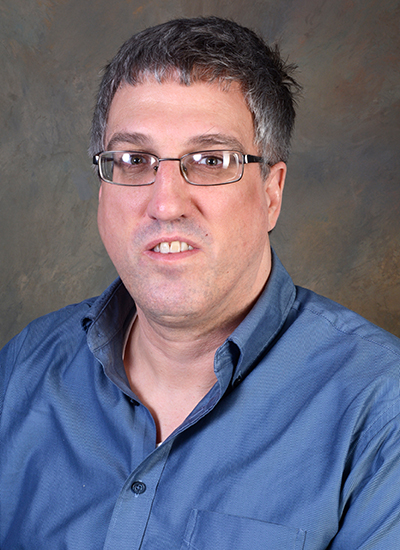Jeffrey Mullins
Meet our faculty
Dr. Jeffrey Mullins
 Dr. Mullins researches and writes about early America, especially the era between the Revolution and the Civil War. Broadly speaking, he is interested in how contemporary ideas about human nature and individual agency played out “on the ground”, in a variety of situations: schools, legal battles, religious revivals, health reform movements, etc.
Dr. Mullins researches and writes about early America, especially the era between the Revolution and the Civil War. Broadly speaking, he is interested in how contemporary ideas about human nature and individual agency played out “on the ground”, in a variety of situations: schools, legal battles, religious revivals, health reform movements, etc.
He is especially interested in how understandings of racial difference in that era created conflicting answers to the questions of “What does it mean to lead a self-governed life?” and “Who can be held accountable for their actions?” In addition to pursuing these questions in a variety of articles and book chapters, he is completing a book project entitled, A ‘Monster in Human Shape’: Race, Reason, and Responsibility in American Culture. Here he explores how a seemingly “open and shut” cross-racial murder case became headline news across the country, pulling in national-level politicians to take on the prosecution and defense roles in a trial lasting months and setting precedents still invoked in courtrooms today.
Dr. Mullins teaches classes in American History, with an emphasis on early America. In recent years he has taught:
- Race in America (HIST 109)
- America to 1865 (HIST 140)
- African American History (HIST 350)
- Revolutionary American (HIST 421/521)
- Launching a Nation: America 1792-1848 (HIST 422/522)
- Historiography and Historical Methodology (HIST 610)
- Community History (HIST 674)
Select Publications
- “A ‘Fiend Incarnate’: Sin, Science, and the Problem of Evil in the New American Nation,” in Malcah Effron and Brian Johnson, eds., The Functions of Evil Across Disciplinary Contexts (2017).
- “Shifting Our Focus on New York’s Rural History: Politics, Prisons, and Social Reform,” New York History 97.4 (Fall 2016).
- “‘Hurrah for Hanging’: Monsters, Irony, and the Contested Meaning of Horror in Nineteenth-Century America,” Interdisciplinary Humanities 33.2 (Fall 2016).
- “‘Equivocating upon Law and Science’: Medicine, Politics, and Humanitarianism in Nineteenth-Century America,” in Cyril Besson and Veronique Molinari, eds., Using and Abusing Science: Science and Political Discourse from Burke’s “French Revolution” to Obama's Science Fair (2016).
- “Race, Place, and African-American Disenfranchisement in the Early Nineteenth-Century American North,” Citizenship Studies 10 (2006).
- “‘Fitted to Receive the Word of God’: Emotions and Scientific Naturalism in the Religious Revivals of the 1830s,” International Social Science Review 81 (2006).
- “Standing on Their Own: African American Engagements with Philanthropy in Antebellum America,” in Mary Beth Gasman, ed., Uplifting a People: Essays on Black Philanthropy and Education (2005).
- “‘In the Sweat of Thy Brow’: Education, Manual Labor, and the Market Revolution,” in Scott Martin, ed., Cultural Change and the Market Revolution, 1789-1860 (2005).
- “Honorable Violence: Youth Culture, Masculinity, and Contested Authority in Liberal Education in the Early Republic,” ATQ: 19th-Century American Literature and Culture, Vol. 17.3 (Fall, 2003).
Grants and Fellowships
Dr. Mullins has received grants and fellowships from the National Endowment for the Humanities, the Prindle Institute for Ethics—DePauw University, the Center for Humanistic Inquiry—Emory University, the Spencer Foundation for Research in Education, the Pew Program in Religion and American History, the College of Physicians of Philadelphia, St. Cloud State University, the Andrew W. Mellon Postdoctoral Fellowship (University of Oklahoma), and the American Philosophical Society.
Presentations
- ‘Liberia is a Prison and Charnel House’: Debating the Oppressive Dimensions of African Colonization, 1780-1840,” American Society for Eighteenth-Century Studies Annual Meeting, April 1, 2017.
- “‘The Benevolence of the Age’: Debates over Social Reform and the Common Good in New York State,” Northern Great Plains History Conference, September 16, 2016.
- “Can We Have an Intellectual History of Violence by the Marginalized?,” Symposium on “Hearing the Inarticulate: Ethics and Epistemology in the Archives,” Prindle Institute for Ethics, DePauw University, June 21, 2016.
- “From Southern Plantation to Northern Lecture Hall: Selective Public Commemoration of African-American Experiences in Antebellum Colleges,” National Council on Public History Conference, Texas State University—San Marcos, October 10, 2015.
- “Come to Hear the True Word: Theology and Popular Religious Dialogues in Antebellum New York,” American Society of Church History Annual Meeting, April 17, 2015.
- “Forming a Nation, Re-Framing a Profession: Race, Medical Science, and Physician Understandings of Medical Identity,” History and Philosophy of Science Colloquium, University of Minnesota, March 30, 2012.
- “Embracing History?: Social Reform and Its Racialized Past,” European Early American Studies Association, University of Paris-Diderot, France, December 11, 2010.
- “‘Quite High Minded’: African American Appropriations of Antebellum Concepts of Benevolence and Intellectual Development,” U.S. Intellectual History Conference, New York, November 12, 2009.
- “Professional Development and History,” 2010 Vincent DeSantis Lecture, Department of History, University of Notre Dame, October 30, 2009.
- “The ‘Difference Between Moral Insanity and Moral Depravity’: Crime, Responsibility, and Politics in Nineteenth-Century America,” Northern Great Plains History Conference, October 16, 2009.
- “A ‘Downcast Look’ and the ‘Eye of Insanity’: Judging Moral Character from External Appearance,” Early American History Workshop, University of Minnesota, May 6, 2009.
- “‘Hold Him Then to Be a Man’: Race, Moral Responsibility, and the Law in the Antebellum North,” Conference on Race, Law, and (In)Justice: Commemorating and Remembering the Dred Scott Decision after 150 Years, College of Saint Benedict, October 8, 2007.
Education
- A.B., History & Philosophy, Reed College, 1989
- M.A., History, John Hopkins University, 1992
- Ph.D., History, John Hopkins University, 1998